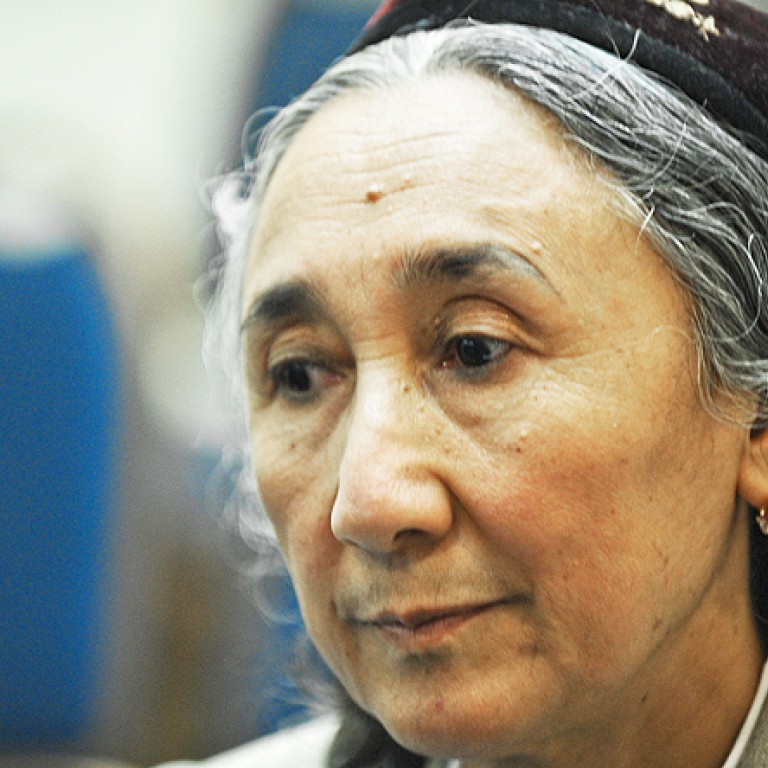
Exiled Uygur leader Rebiya Kadeer urges calm after Kunming attack
A prominent exiled Uygur leader has urged China’s government to respond calmly to a knife attack in southwestern China and not “demonise” ethnic Uygurs after Beijing blamed the mass killings on extremists from the far western region of Xinjiang.
Rebiya Kadeer, President of the World Uygur Congress, also said tension could only be reduced in Xinjiang if China acknowledged rights issues the large Uygur minority faces.
At this time of heightened tensions, it is important for China to deal with the incident rationally and not set about demonising the Uygur people as state enemies
China has vowed to crack down on what it says are militants bent on transforming Xinjiang into an independent state called East Turkestan. But it has also emphasised ethnic unity after what it described as a terrorist attack on Saturday in Kunming in which 33 died, including four assailants.
Many Muslim Uygurs object to Chinese curbs on their culture and religion, though authorities say they enjoy broad freedoms.
“At this time of heightened tensions, it is important for China to deal with the incident rationally and not set about demonising the Uygur people as state enemies,” Kadeer said in the English-language statement.
“The fact remains that peaceful dissent against repressive government policies targeting Uygurs is legitimate, so the Chinese government must not conflate this constructive criticism with the events of March 1.
“It is absolutely vital the Chinese government deal with the longstanding and deteriorating human rights issues facing Uygurs if tensions are to be reduced.”
Kadeer is a former Chinese political prisoner accused of leaking state secrets in 1999 who left China on medical parole and settled near Washington with her husband and part of her family in 2005.
She previously had been a celebrated millionaire who had advised China’s parliament, and is now condemned by Beijing as an “anti-Chinese splittist”.
The statement added that the World Uygur Congress “unequivocally condemns the violence that took place at Kunming railway station” and expressed condolences to victims’ families.
The government has not explicitly accused Uygurs of carrying out the attack, though by calling them Xinjiang extremists the implication is clear.
The one person identified by Beijing as being an attacker, Abdurehim Kurban, appears to be Uygur, judging by his name.
In Kunming, capital of the southwestern province of Yunnan, many hundreds of km from Xinjiang, members of the small Uygur community have said they felt under suspicion.
The government has responded with anger to suggestions that its policies may be to blame for violence in Xinjiang, saying that it faces a real threat from “terrorists”.
Fu Ying, spokeswoman for China’s largely rubber-stamp parliament, which opens its annual session on Wednesday, told reporters that the Kunming attackers were “inhuman” killers and that the world should unite to combat terrorism.

